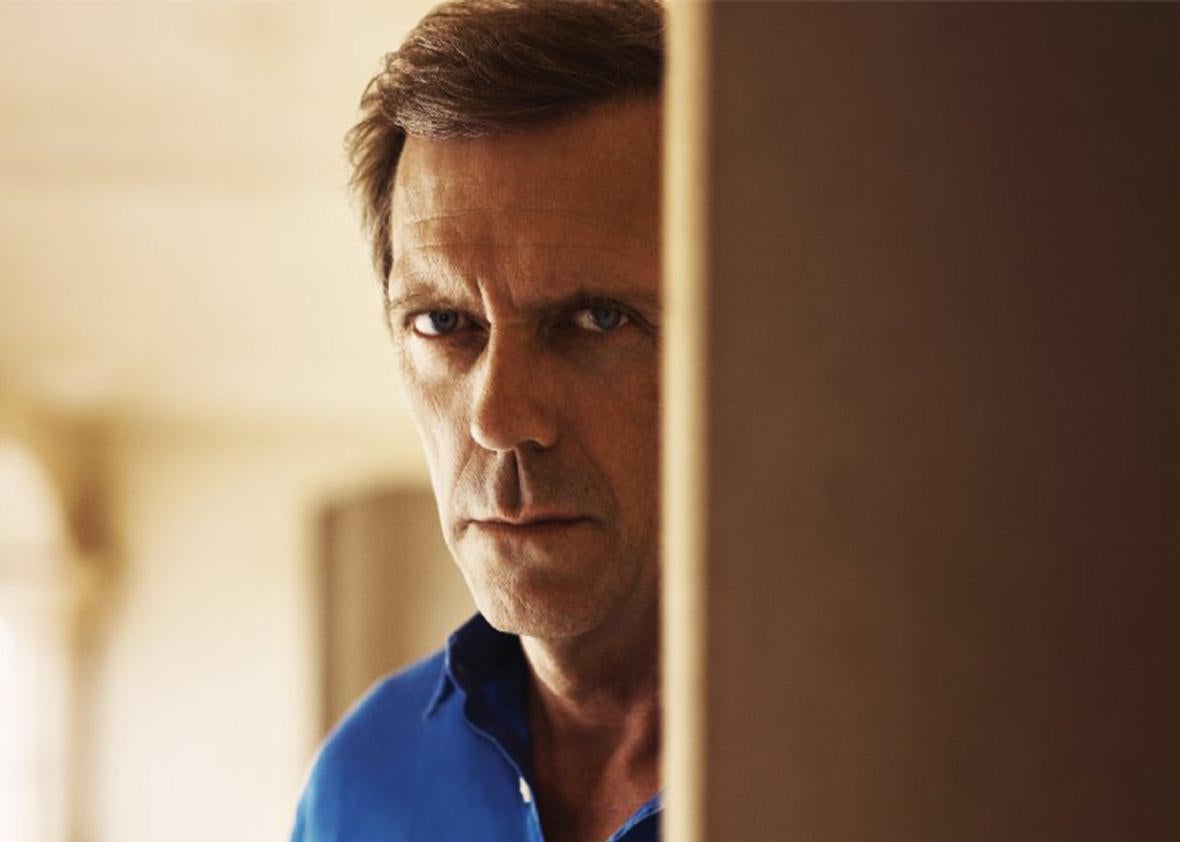The European Union may be in a state of perpetual simmering crisis, but the Euro thriller, a particularly debonair and moody subset of the genre, is booming. These dark and stylish miniseries are multilingual and peripatetic, with plots featuring vast commercial conspiracies, corrupt spy agencies, and the reverberations of past violence. They hop around a portion of the globe like James Bond movies, but their principal concerns are grit and geopolitics, not gadgets and girls. The series—think of Sundance’s The Honorable Woman—crisscross a Europe so crisscrossed with history and compromise, their protagonists inevitably get tripped up. These shows scratch a genre itch until they make it bleed.
Two such series are newly available to American audiences. The Night Manager, premieres Tuesday night on AMC, but originally aired on the BBC and is directed by Susanne Bier, a Dane. It is a relatively sunny example of the type. When I say sunny, understand that this is a series in which an amoral arms dealer sells napalm and nerve gas to the Syrian regime with the tacit permission of the British state. But no amount of jaded realpolitik can fully counter the beach-vacation ambiance emitted by the tousled, sun-kissed locks of the shows hero, Jonathan Pine, played by an impossibly slim-hipped Tom Hiddleston.
The six-episode miniseries, loosely based on a 1993 novel by John le Carré, begins in Cairo in 2011, in the midst of the Egyptian revolution, when Pine, a dashing hotel employee, first encounters both British intelligence agent Angela Burr (Broadchurch’s perfectly harried Olivia Coleman) and charming arms dealer Richard Roper (Hugh Laurie). After a jaunt to Zurich and the English countryside, Pine, now working for Burr, infiltrates Roper’s operation, which leads to lots of mental pas de deux and nail-biting undercover activities, many of which take place in Spain, at Roper’s glorious beachside villa.
Driving the show’s plot is a history of violence, continuously spilling over into the present. Burr’s vendetta against Roper has to do with her experience, as a British intelligence officer, of witnessing the aftermath of a sarin gas attack. Pine served in Iraq before he began working in hotels. Roper is able to hide the hub of his operations in Iraq by making like he’s there on humanitarian missions. The British intelligence agencies, with the exception of Burr’s small, poorly funded office, are in cahoots with Roper, not only for the kickbacks, but because, when faced with intractable, violent conflict, they prefer the devil they know, even if he is selling chlorine gas, to the one they don’t.
The Night Manager is concerned with the complications and accommodations made to cope with man-made, humanitarian disasters. But all the permutations of its plot, however grisly and threatening, never dominate the show in the way they are meant to. Hiddleston, all Ralph Fiennes by way of Jude Law’s Dickie Greenleaf, is irrepressibly redolent of sunscreen and holidays, even when he’s sneaking around an Iraqi refugee camp in the dead of night. If he has no particular sexual chemistry with Roper’s much younger wife, Jed (a very good Elizabeth Debicki, taller than Hiddleston by a charming inch), he doesn’t need it: People so attractively long-limbed and tow-headed are meant to tangle their indistinguishable elbows in 800–thread-count sheets.
If The Night Manager is a bit more of a lark than it aspires to be, The Last Panthers, which already aired across Europe and recently began airing on the Sundance Channel, is its knottier, grimmer kin. The miniseries, with dialogue in English, French, and Serbian, is inspired by a real-life Balkan jewel-thief ring, who were dubbed the Pink Panthers, after the film, by Interpol. The series begins with an almost perfectly choreographed diamond heist in Marseille, France, with the robbers making use of thick glugs of bubblegum-pink paint. It’s an elegant, witty sequence that works as a bit of a fake-out, a balletic introduction to a series about a filthy world, where the most well-coordinated actions have violently unpredictable consequences.
The heist introduces us to the major characters and then splits them off, to follow their own interlocking storylines. An ambitious Marseille police officer, Khalil (Tahar Rahim), begins to investigate the case, linking it to an influx of guns coming into Marseille, through the housing projects where he grew up. The thieves are Serbian and part of an organization, the Panthers, that has been in operation since the Bosnian War. Milan (a touching Goran Bogdan, a macho ringer for John Krasinski), who earned the nickname Animal during the war, returns to Belgrade and gets caught back up in the Panthers’ attempts to get out of diamonds and guns and into the less dangerous line of government contracts. During the war, Milan encountered Naomi Franckom (Samantha Morton), a British insurance agent tasked with locating the stolen diamonds, who was a UN peacekeeper.
The Last Panthers is dense and can be hard to follow, jumping around not just in location but in time, introducing more and more characters and complications as it goes. But it pays off. As Khalil and Milan and Naomi try in their own ways to make things better, they can’t escape the way things are done. The brutal climax of the series plays out, ironically, to a positive speech, given at a conference, celebrating the EU’s bringing together of East and West. The Last Panthers is about the seamy compromises, and worse, beneath that union.
